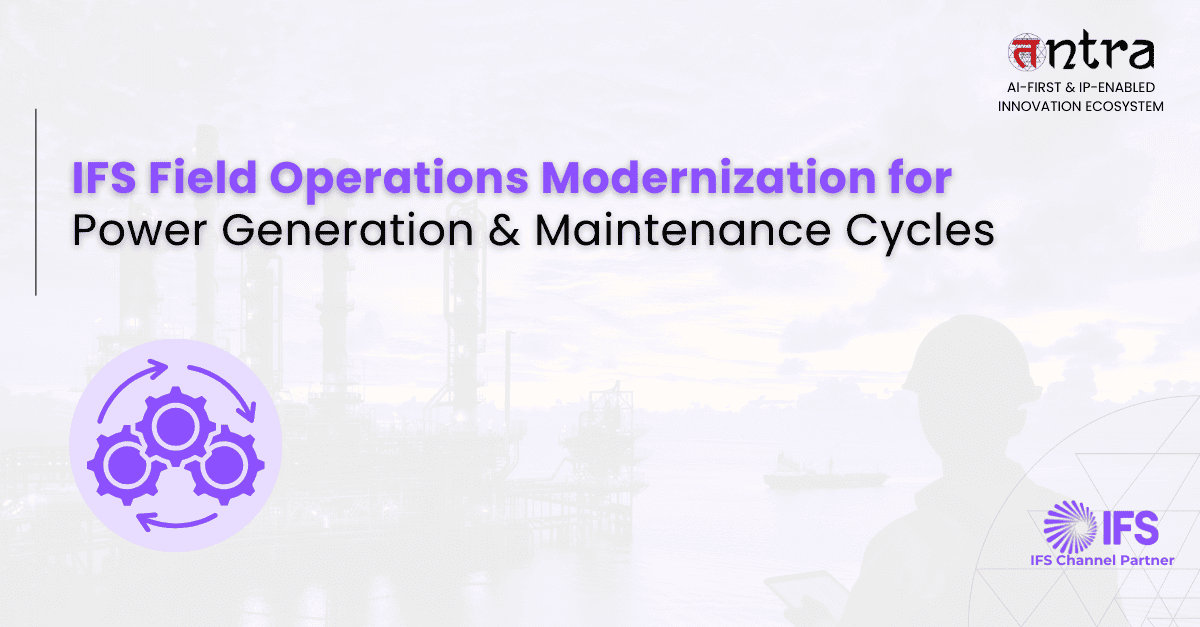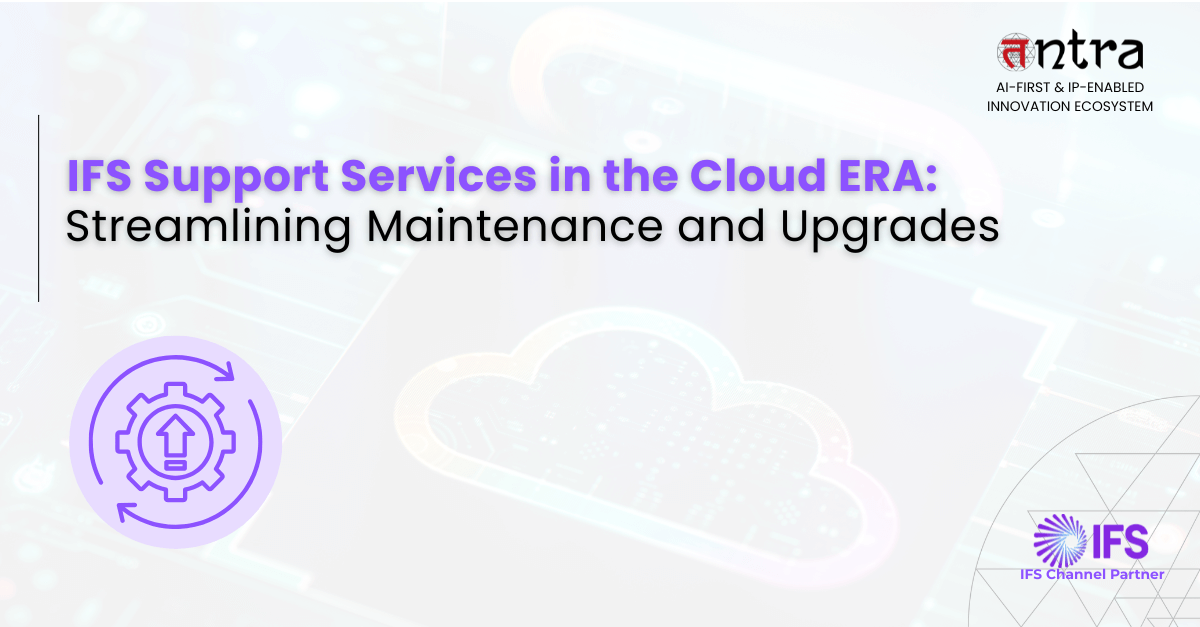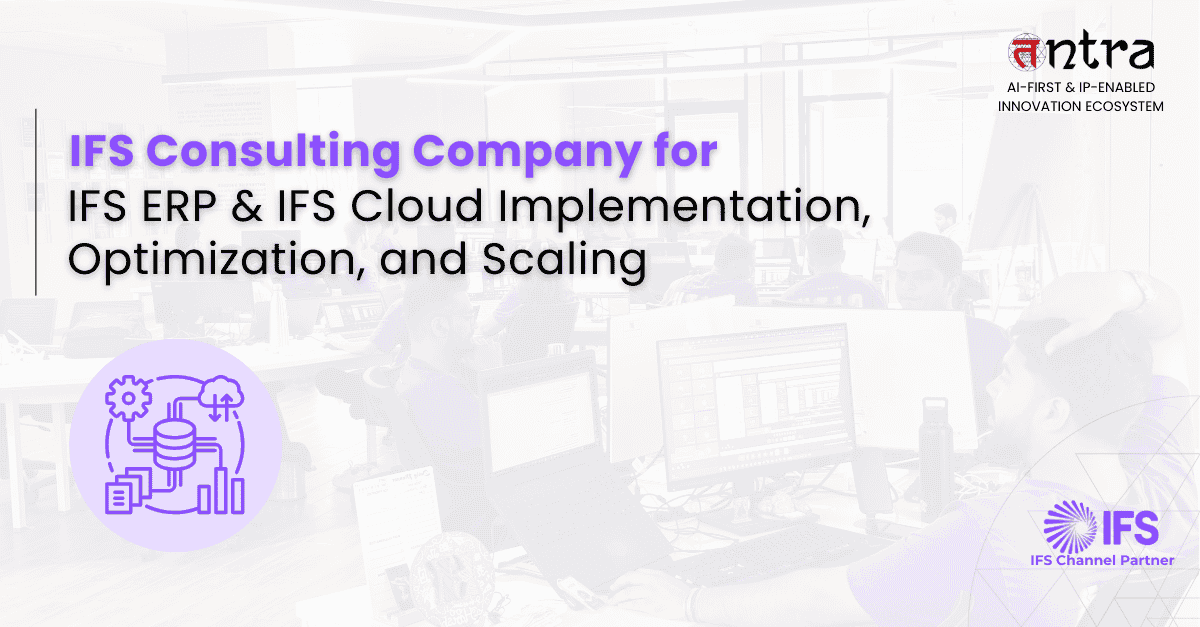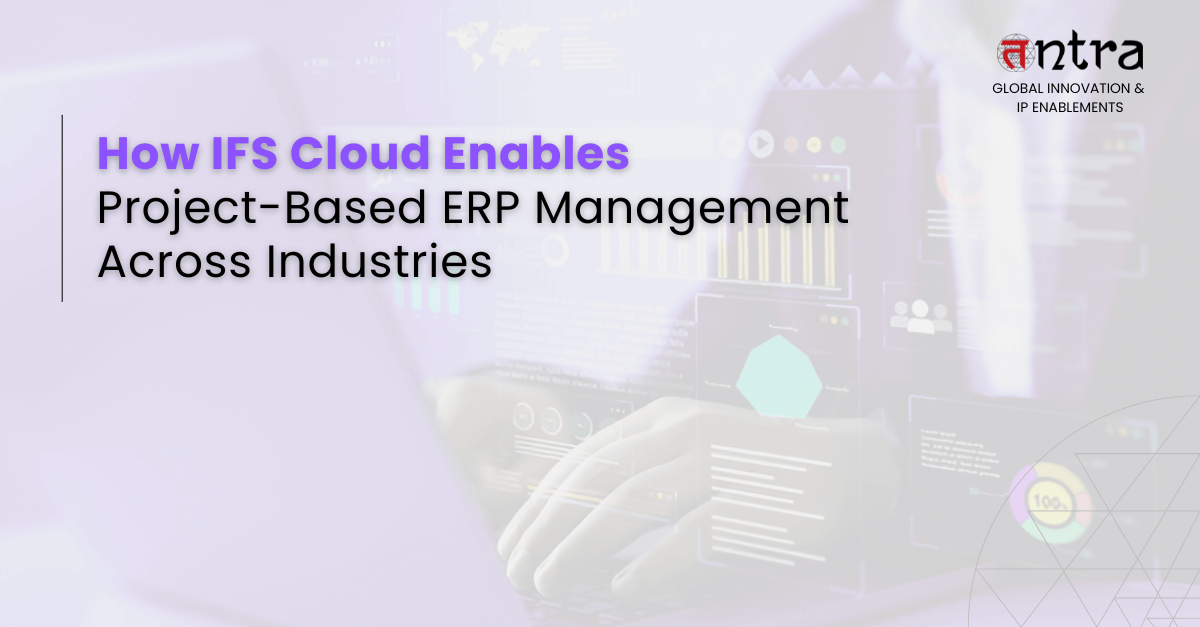
How IFS Cloud Enables Project-Based ERP Management Across Industries
Table of Contents
ToggleThis blog explores how IFS Cloud is transforming project-based ERP management for industries like construction, aerospace, energy, and manufacturing. Unlike traditional ERP systems, IFS ties every function—from finance to fieldwork—directly to the project lifecycle. With real-time tracking, built-in risk management, integrated financials, and post-project support, it replaces scattered systems with one powerful platform. The result? Greater visibility, better decisions, and stronger outcomes. Learn why IFS Cloud is the go-to ERP for businesses that run on complex projects. Continue reading to learn more.
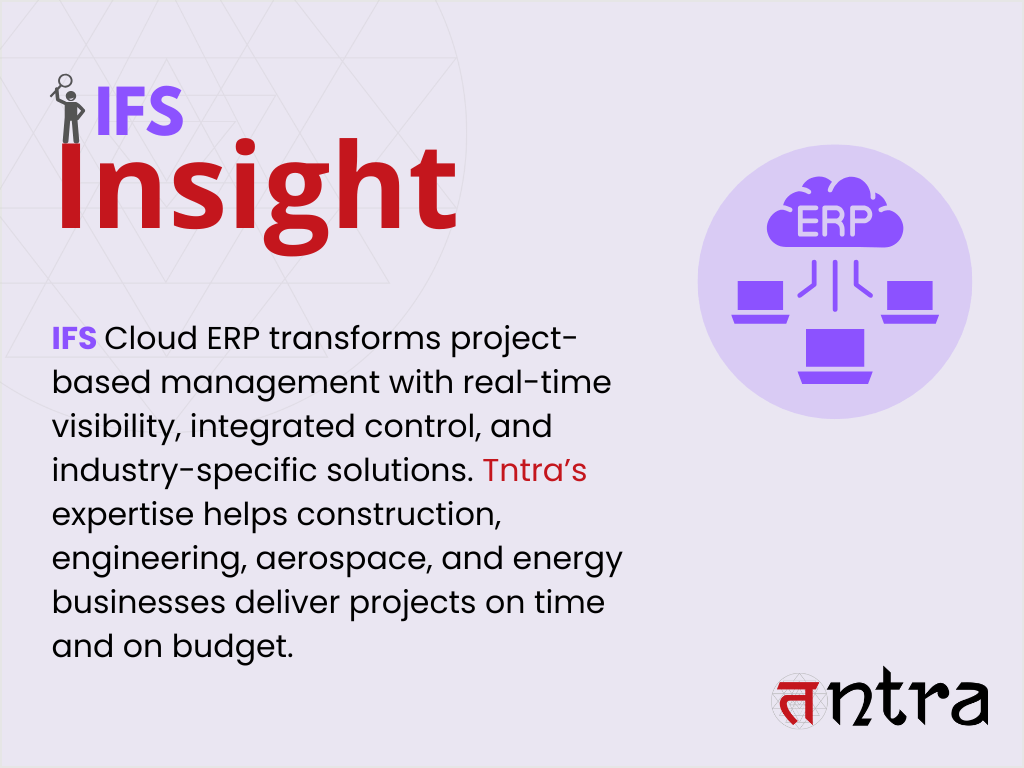
The Challenges of Project-Based Work—and How IFS Cloud ERP Solves Them
Let’s be honest – running a project-based business can sometimes feel like juggling fire while riding a unicycle… on a tightrope… in a windstorm. Every moving piece matters, every delay costs money, and every client expects magic.
Whether you’re managing large-scale construction projects, complex manufacturing cycles, or long-term service contracts, one thing is clear: you need a system that doesn’t just track tasks – it runs the whole show. And that’s where IFS Cloud steps in.
Explore IFS ERP System and discover ERP implementation best practices for project-based industries.
IFS Cloud ERP helps you overcome the challenges of managing projects without ERP by delivering integrated project management software and ERP digital transformation for your industry.
Today, we’re diving into how IFS Cloud enables project-based ERP management across industries, why it’s becoming a favorite among complex businesses, and how it transforms chaos into clarity – for good.
First, What is Project-Based ERP?
You’ve heard the term, but let’s break it down like humans.
Project-based ERP is an enterprise system built around projects – not just departments or functions. Instead of treating operations, finance, procurement, and service as disconnected silos, a project-based ERP system connects everything to the project timeline, budget, and deliverables.
IFS ERP system is designed to deliver ERP Implementation for Projects, ensuring every resource, purchase, timesheet, change order, and invoice is tied directly to the project it belongs to.
This is a game-changer for industries like:
- Engineering and construction
- Aerospace and defense
- Professional services
- Complex manufacturing
- Utilities and infrastructure
- Oil, gas, and energy
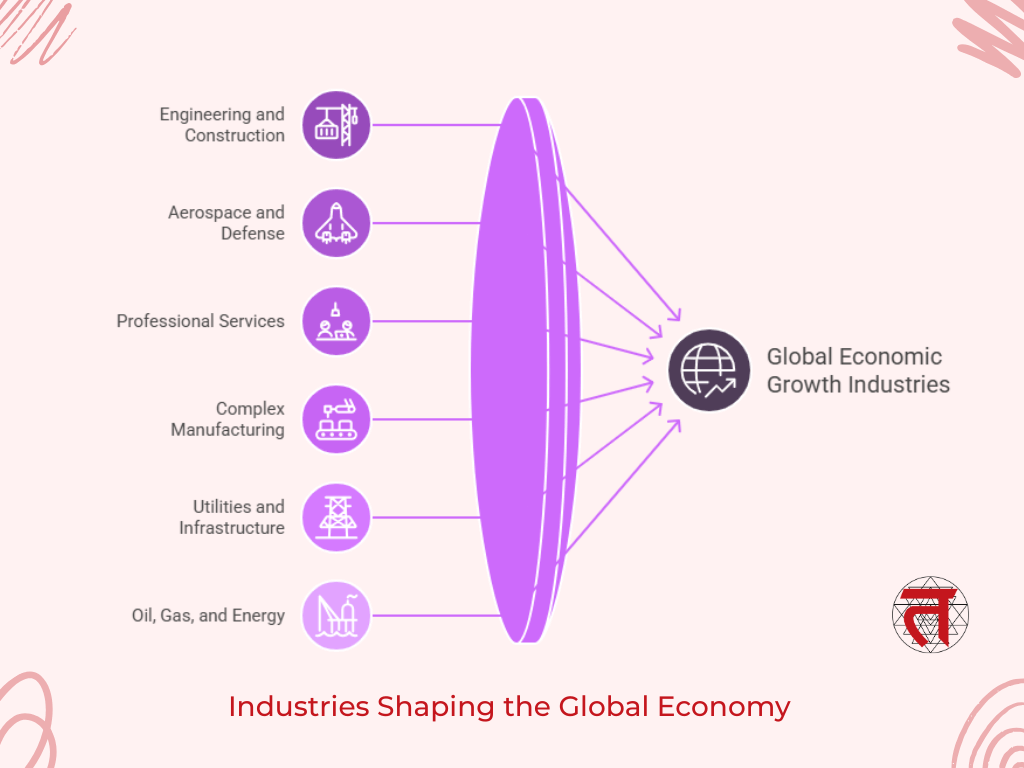
Learn more about IFS Project-Based Management and its role in industry transformation.
If you’re in any of these, you’re not just delivering products – you’re delivering outcomes. And ERP for project-based businesses is built to manage exactly that.
Why Traditional ERP Doesn’t Cut It for Projects
Let’s say you’re using a typical ERP system.
Sure, it’s great for inventory, payroll, and accounting. But when you try to map an entire project – costs, risks, schedules, billing, teams – across that system? Suddenly you’ve got 6 different spreadsheets, 4 standalone apps, 3 frustrated team members, and zero real-time visibility.
And when something changes (which it always does), it takes days to figure out the impact.
IFS Cloud ERP flips that script by offering ERP solutions for engineering and construction firms with cloud ERP for project industries.
So… How Does IFS Cloud Support Project-Based Businesses?
Great question – and the answer is what makes IFS stand out.
At its core, IFS Cloud is built with a project-first mindset. Every function – whether it’s finance, HR, asset management, or procurement – can be tied to a project. That means your entire organization operates around project delivery, not just internal workflows.
How does IFS Cloud support project-based businesses?
It provides cloud ERP for complex project management with IFS cloud services designed for ERP digital transformation.
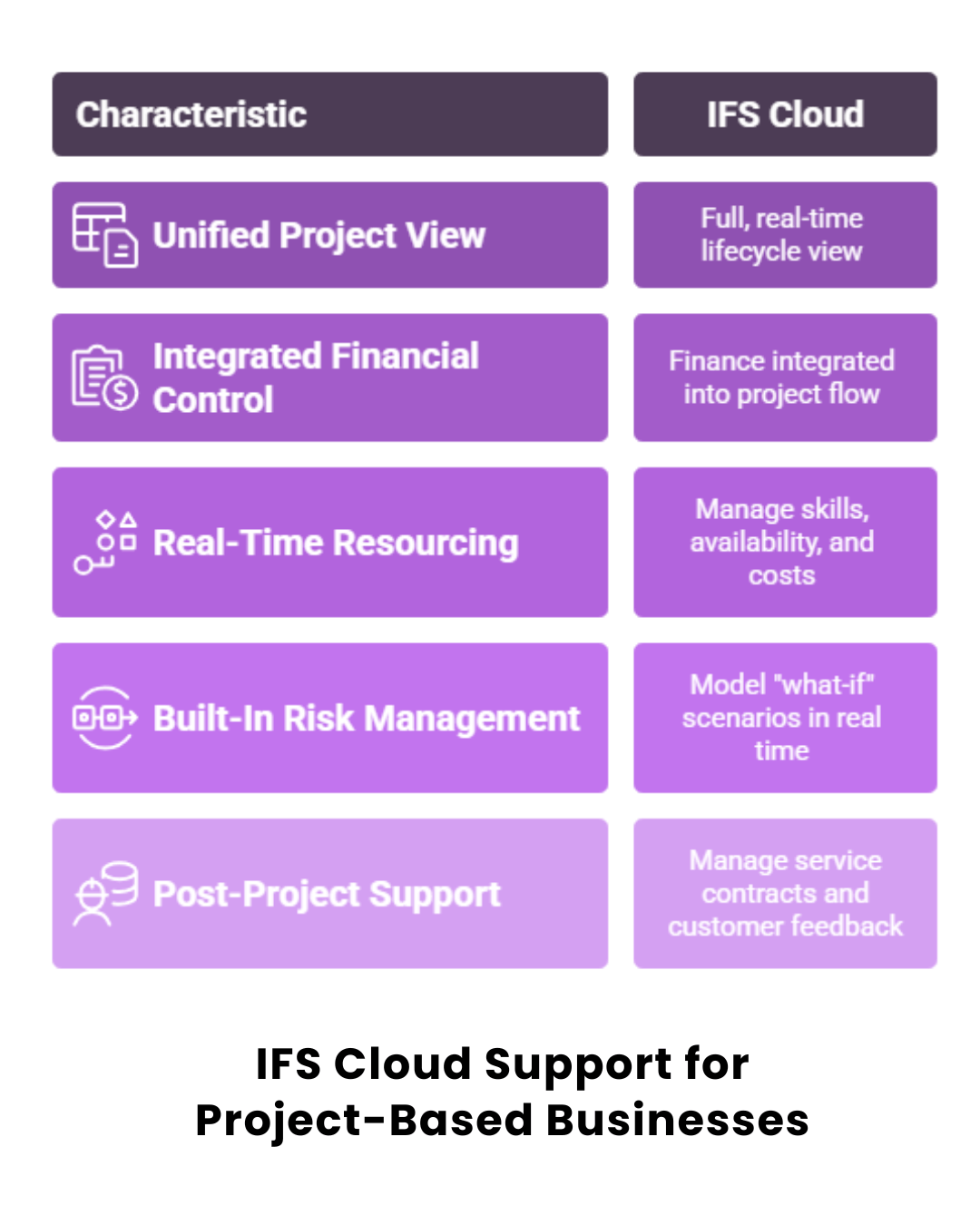
Here’s what that looks like in action:
1. Unified Project View
With IFS, you get a full, real-time view of the entire project lifecycle – from sales opportunity and planning to execution and service. You can track milestones, budgets, resourcing, risk, and profitability in one place.
No more chasing updates across departments. You see what’s happening, when it’s happening.
2. Integrated Financial Control
Instead of reconciling project costs with finance every month, IFS ERP integrates finance right into the project flow. You get project-specific cost tracking, revenue recognition, margin visibility, and forecasting – without duplication or delays.
3. Real-Time Resourcing
Assign the right people to the right project at the right time. IFS lets you manage skills, certifications, availability, and costs – all connected directly to project plans. You get resource optimization without burning out your teams.
4. Built-In Risk Management
Changes happen. IFS Cloud helps you model “what-if” scenarios in real time – so when a client asks for something new, or a supplier drops out, you instantly see how it affects timelines and budgets.
5. Post-Project Support
Many ERP systems stop tracking once the project ends. IFS projects don’t. You can manage service contracts, warranties, maintenance schedules, and customer feedback – all from the same system.
This is particularly powerful in service-centric industries like construction, aerospace, and utilities, where long-term client relationships matter.
Real Talk: Why Businesses Choose IFS Cloud ERP for Project-Based Work
Let’s skip the jargon and talk about what actually makes IFS Cloud ERP a favorite for complex businesses:
- It’s modular – start with what you need, add more later.
- It’s cloud-native – lower overhead, easier upgrades.
- It’s industry-specific – built with real-world use cases in mind.
- It’s flexible – you can customize without breaking it.
- It’s user-friendly – teams don’t need a PhD in IT to use it.
But perhaps most importantly, it’s built around projects – not just processes. And that’s the shift SMBs and enterprises alike are waking up to.
IFS Cloud ERP is also perfect for IFS upgrades and IFS Industrial AI for smarter decision-making.
But perhaps most importantly, it’s built around projects – not just processes.
IFS Solutions in the Real World: Industry Use Cases
Let’s bring this down to earth with some real-world examples of how IFS solutions are used across industries:
Engineering & Construction
When managing multi-year construction projects, you need everything aligned – costs, subcontractors, materials, change orders. IFS applications give project managers a single source of truth and connect field teams with HQ in real-time.
Why it matters: You stay on schedule, in budget, and reduce the chaos of scattered systems.
Aerospace & Defense
Here, precision is everything. IFS Cloud supports complex supply chains, multi-tier project management, asset tracking, and compliance – all tied to each contract.
Why it matters: You meet regulatory requirements, deliver on time, and avoid massive penalties.
Manufacturing
Think of a custom equipment manufacturer. Every order is basically its own project – designed, built, delivered, and serviced. IFS Cloud ERP handles product lifecycle, engineering, procurement, and installation in a connected flow.
Why it matters: You deliver exactly what was promised, and keep service teams in the loop for long-term support.
Utilities & Energy
Long-term infrastructure projects need asset tracking, contractor coordination, maintenance schedules, and customer service – over decades. IFS ERP for service-centric industries handles this end to end.
Why it matters: You maximize uptime, manage costs, and keep customers (and regulators) happy.
Key Benefits of Project-Based ERP Systems (Like IFS Cloud)
Now let’s answer the obvious question: what’s the real upside?
Here’s what companies experience after implementing a project-based ERP like IFS:
- End-to-end visibility over every aspect of the project.
- Real-time decision-making with up-to-date data.
- Fewer surprises and better change control.
- Improved cash flow and financial forecasting.
- Tighter collaboration between departments and teams.
- More accurate billing and faster revenue recognition.
- Higher customer satisfaction with post-project support.
- Scalability for growth and changing business needs.
If you’ve ever asked yourself, “Where did that budget go?” or “Why didn’t we see that delay coming?” – this system is for you.
What Makes IFS Cloud Services Stand Out?
Let’s say you’ve bought the software. Now what?
Here’s where IFS Cloud services really shine: implementation, support, training, upgrades, and long-term optimization. The ecosystem includes expert IFS consulting services, strong partner networks, and global support.
And the best part? IFS upgrades are seamless. You’re always on the latest version, with new capabilities rolling out smoothly – no more massive version upgrades every 3 years.
The ecosystem includes expert IFS Consulting Services and IFS Support Services to ensure ROI.
IFS Cloud ERP for Complex Project Management: Why Timing Matters
If you’re still using disconnected systems, outdated spreadsheets, or “duct tape ERP,” you probably already feel the friction. Teams waste time chasing updates, leadership makes decisions with half the data, and customers feel the lag.
Modernizing with a system like IFS Cloud isn’t just a tech decision. It’s a business decision. It’s about enabling your people to do their best work – and giving them the tools to succeed without burnout.
The longer you wait, the harder it is to fix the mess later. But the good news? Starting with IFS doesn’t require a big bang. You can phase it in by department, by project, or by function.
The Role of IFS Consulting Services in Getting It Right
Even the best ERP system can fail with the wrong setup.
That’s why IFS consulting services are so important. These are the folks who:
- Help you design your ideal workflows.
- Configure the system to match your business.
- Train your teams in plain English.
- Offer post-go-live support.
- Guide IFS upgrades and optimization over time.
They’re not just consultants – they’re your project allies.
Final Thoughts: Ready to Run Projects Like a Pro?
Here’s the truth: the old way of managing projects – across disconnected systems, outdated tools, and exhausted teams – isn’t sustainable.
If your business runs on projects, it’s time your ERP system did too.
IFS Cloud offers a flexible, powerful, and future-ready solution for project-based ERP management. Whether you’re in construction, energy, aerospace, or services, it connects your people, projects, and data in one intelligent system.
It’s not just an upgrade. It’s a reset. A fresh way to run your business with visibility, control, and confidence.
So if you’ve been asking, “How does IFS Cloud support project-based businesses?” – now you know.
It supports them completely. And it might be exactly what your business needs next.
Ready to transform your business with IFS Cloud? Hire an IFS ERP Expert today.
Talk to our team to see how IFS Channel Partner services can deliver industry-specific ERP solutions tailored to your needs.
FAQs
1. What is IFS Cloud and how does it support project-based businesses?
IFS Cloud is an industry-focused ERP that unifies project planning, finance, and service in one system, delivering real-time visibility and control for complex, project-based businesses.
2. Why choose a Project-Based ERP system over traditional ERP?
Project-Based ERP connects all functions to the project lifecycle, offering real-time tracking and collaboration that traditional ERP systems can’t match.
3. What are the benefits of using IFS Cloud ERP for project-based industries?
IFS Cloud ERP offers end-to-end visibility, integrated financial control, and better resource management for industries like construction and engineering.
4. How does IFS Cloud ERP simplify ERP implementation for projects?
IFS Cloud ERP enables modular, phased deployment with best practices, making implementation easier, faster, and more cost-effective.
5. How can businesses get help with IFS Cloud ERP implementation?
Companies can hire expert IFS consulting services for design, setup, training, and ongoing support to ensure successful ERP deployment.
 Download IFS Guide
Download IFS Guide 